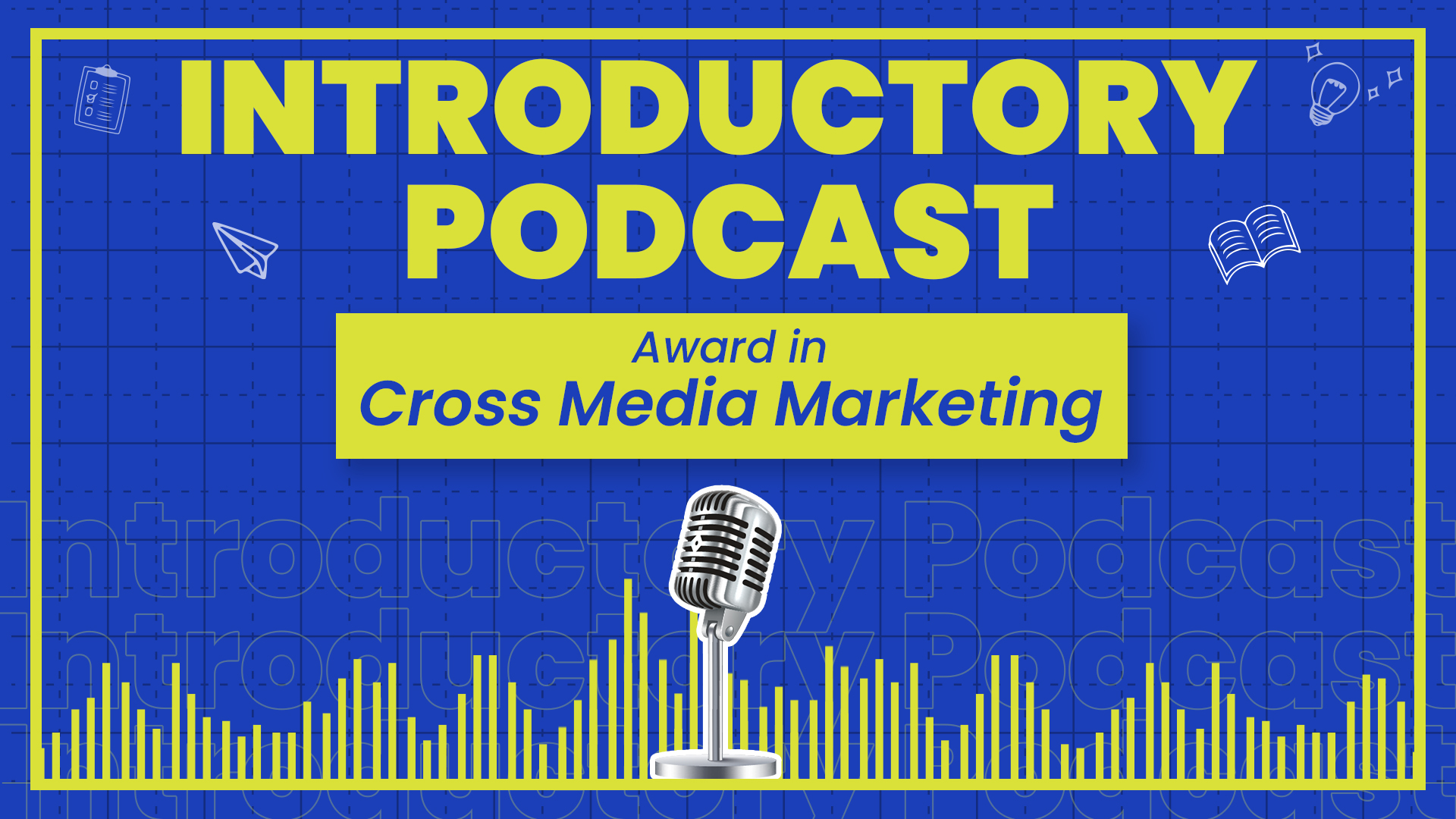Award in Cross Media Marketing
Moving beyond media monitoring, this module shows students media data can be used to provide insights into markets and consumers’ perceptions.
-
OrientationDirector’s Introduction03:27Orientation10:52Understanding Podcasts01:46Understanding Pre-recorded Lectures02:25Understanding Pre-recorded Interviews01:54Understanding Case Studies01:47Understanding Discussion Boards02:30Ascencia Style SheetAI PolicyPolicy for Online Interaction and Behaviour for E-Academic Students
-
Coursework: Cross Media MarketingIntroductory Podcast00:05:57Assignment Podcast00:04:59
-
Section 1: Foundations of Cross Media and Marketing TheoryLecture: Part 1: The Sociology of Media Marketing00:44:05Lecture: Part 2: The Sociology of Media Marketing01:00:22Sociology of Media MarketingJournal Article: The Sociology of Market WorkPodium Lecture: Introduction to Content Marketing00:49:25Journal Article: Content Marketing Strategy: Definition, Objectives and TacticsPodium Lecture: Fundamentals of Digital Communication00:47:45Journal Article: Fundamentals of Digital Communications Systems
-
Section 2: Cross-Media Marketing Principles and ExecutionPodium Lecture: Part 1: Core Principles of Cross-Media Marketing00:33:08Podium Lecture: Part 2: Core Principles of Cross-Media Marketing00:35:39Journal Article: Mechanisms of Influence in Cross Media NarrationPodium Lecture: Design of a Cross-Media Marketing Strategy00:34:45Journal Article: Marketing Communication StrategyPodium Lecture: Effectiveness of Cross-Media Campaigns Evaluation00:32:54Lecture: Evaluation and Improvement of International Cross-Media Marketing Efforts00:55:19Evaluation and Improvement of International Cross-Media Marketing EffortsJournal Article: Evaluation of a Mass-Media CampaignPodium Lecture: Storytelling and Branding Techniques00:33:26Lecture: Faith-Driven Cross-Media Marketing01:28:28Faith-Driven Cross-Media MarketingJournal Article: Studying Religion and Marketing. An IntroductionPodium Lecture: Strategy and Campaign Planning00:47:18Journal Article: Campaign Planning and EvaluationPodium Lecture: Development and Execution of a Cross-Media Campaign00:30:08Lecture: Crisis Management Plans for Potential Reputational Risks01:32:10Crisis Management Plans for Potential Reputational RisksJournal Article: The Reputation Crisis
-
Section 3: Digital Tools and Targeting in Marketing PracticePodium Lecture: Buyer Personas00:32:39Journal Article: How to Use the Six-Step Digital Ethnography Framework to Develop Buyer PersonasPodium Lecture: Social Media Visibility00:43:45Journal Article: Social Media Visibility: Challenges to ActivismPodium Lecture: Social Media Marketing (SMM)00:41:08Journal Article: The Role of Social Media Marketing on Brand EquityPodium Lecture: Search Engine and Social Media Marketing00:40:37Journal Article: Search Engine Marketing and Social Media Marketing Predictive TrendsPodium Lecture: Search Engine Optimisation (SEO)00:46:07Journal Article: Search Engine Optimisation As Digital Marketing Strategy for Internationalisation of Higher EducationPodium Lecture: Keyword Research00:48:20Journal Article: Keyword Generation for Search Engine AdvertisingPodium Lecture: Paid Advertising and Analytics00:43:46Journal Article: Using Web Analytics to Measure the Effectiveness of OnlineGuest Interview: Gaetano Caruana00:37:42
Moving beyond media monitoring, this module shows students media data can be used to provide insights into markets and consumers’ perceptions. Students will have the opportunity to assess media data, and discern how to analyse and present the data and plan detailed, targeted marketing approaches based on these insights. Students will also be able to identify & critically assess the different media channels in use for marketing (both offline & online media) along with their respective strengths, weaknesses, limitations & current trends on both global and regional levels.
Programme Outcomes
- This module prepares students to understand and apply appropriate channels in an integrated marketing mix according to the needs of the organisation and product.
- Indeed, this module provides students with skills of marketing media monitoring / analysis including the creation of reports and common media metrics of the various channels in marketing.
- MQF/EQF Level 6 qualification. However, students’ circumstances and experiences may also be considered during the application process—five years of relevant working experience in the industry of specialization.
- Proof of B2 level of English should be provided by the students upon application – IELTS level/grade 6 or the student’s country equivalent.
- A Bachelor’s degree or graduate degree in humanities, sciences, human resources, organisational behaviour, business, administration, management, communication, journalism, psychology, arts or a related field.
- Minimum 180 ECTS at MQF/EQF Level 6 previously acquired at a Higher Education institution.
- Outstanding written and oral communication skills.
- A minimum of one year of work experience in a business environment will be considered as an asset.
Course Syllabus Podcast
Gain a Comprehensive Understanding of the Course Syllabus with Our Informative Podcast.
- Multiple choice assessment - 10%
- Assignment - 90%
- E-portfolio
- You can submit your assessment at any time during the course.
What’s included
-
Duration :Full Time - 3 Months
Part Time - 6 Months - Learning: 100 +Hours
- Certificate

